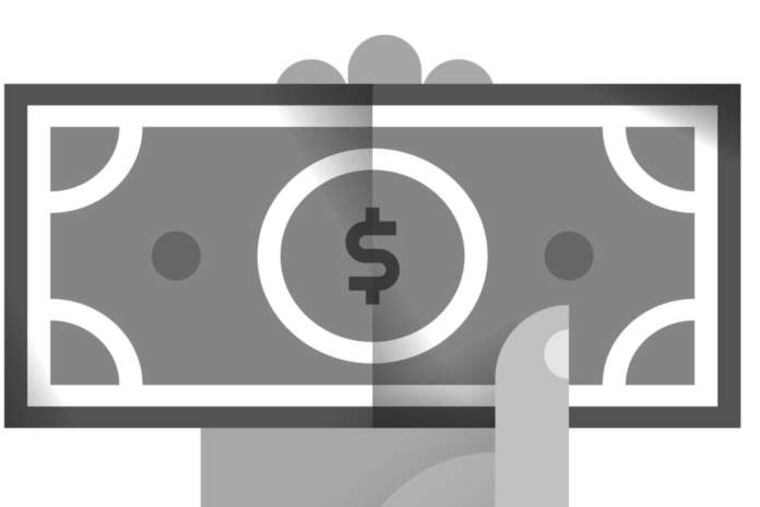Dollar soars - a mostly good thing
King Dollar is back. The value of the U.S. dollar, when compared with the currencies of our global trading partners, has soared over the last year, and it is as strong as it has been in more than a decade.

King Dollar is back.
The value of the U.S. dollar, when compared with the currencies of our global trading partners, has soared over the last year, and it is as strong as it has been in more than a decade.
A muscular dollar is good for most Americans - as long as it doesn't become muscle-bound.
It's rare for the dollar's value to move as dramatically as it has in recent months. Against the euro and the Japanese yen, the dollar is worth an astonishing 20 percent more today than it was a year ago. The last time the dollar was up this much was just after the euro was born in the late 1990s.
Moreover, the dollar is up big against almost every other currency. You name it - the Brazilian real, the Turkish lira, the Thai bhat, and, of course, the Russian ruble - are all down against the dollar. Even the Chinese yuan is struggling to hold its own vis-à-vis the dollar, the first time that has happened in almost a quarter-century.
The dollar is so strong because the U.S. economy is among the strongest on the planet, as evidenced by the more than three million jobs created over the last year. This is boomlike job growth, last experienced at the height of the late-1990s Internet revolution.
At this pace, the unemployed and underemployed are quickly getting back to work, and the economy is fast approaching full employment. It won't make sense for the Federal Reserve to keep short-term rates at zero much longer, and policymakers are sending clear signals that rates will soon rise.
The rest of the global economy isn't faring nearly as well. The European and Japanese economies have yet to recover from their recessions, and risks remain that they will descend into the economic black hole of deflation, or falling prices.
The European Central Bank and Bank of Japan are thus on high alert. The ECB has turned so aggressive that European interest rates have gone negative. That means if you lent money to the German government for a year, when the time was up, you would get back less money than you lent.
Of course, that's a terrible deal, especially as, if you lent money to the U.S. Treasury, you would get all your money back and then some with interest. You would thus much rather invest in the United States than in Europe. With money flowing into the United States and out of Europe, the dollar is soaring against the euro.
The dollar also receives a boost each time a geopolitical hot spot boils over and panicked investors rush foreign money to the safety of the United States. And there are plenty of hot spots, including those created by Russian President Vladimir Putin's belligerence, ISIS, the Israeli-Palestinian standoff, and the never-ending negotiations with Iran over its nuclear program.
China's crackdown on corruption and speech has persuaded nervous wealthy Chinese to buy more American real estate, stocks, and other assets.
U.S. households are reveling in the strong dollar. It pushes down the prices of imported goods, making everything from clothes to cars more affordable. Now is also a great time to travel overseas. The dollar goes much further in Paris, Rio, or Tokyo than it has in years.
We can also thank the strong dollar, at least in part, for low gasoline prices. Because oil is sold across the globe in dollars, when the dollar appreciates, the price of oil in dollar terms declines; if it didn't, overseas buyers couldn't afford it.
On the negative side, the lofty dollar is hurting American companies, especially large multinationals. U.S. exports are more expensive for foreign buyers, and multinationals don't make as much money in dollar terms on their overseas operations. Manufacturers whose operations are global will take it on the chin.
With U.S. households buying more imported products and U.S. companies exporting less, the nation's trade deficit will go deeper into the red. That will hurt economic growth and jobs.
The surging dollar would be more of a problem if it signaled a currency war. In times past, countries would directly weaken their currencies to prop up their exports and economies. This beggar-thy-neighbor strategy would lead to a breakdown in global trade, which is bad for everyone.
But there is no currency war today. Most countries aren't monkeying with their currencies, at least not any more than they have historically. Global trade continues on, to everyone's benefit.
Its strength should assuage concerns that the dollar will lose its status as the globe's reserve currency. That is, most trade and transactions done globally are done in dollars. This reserve status provides us with enormous economic benefits.
The U.S. economy's prospects are good, better than those of most of our trading partners. King Dollar will have a lengthy and healthy reign.